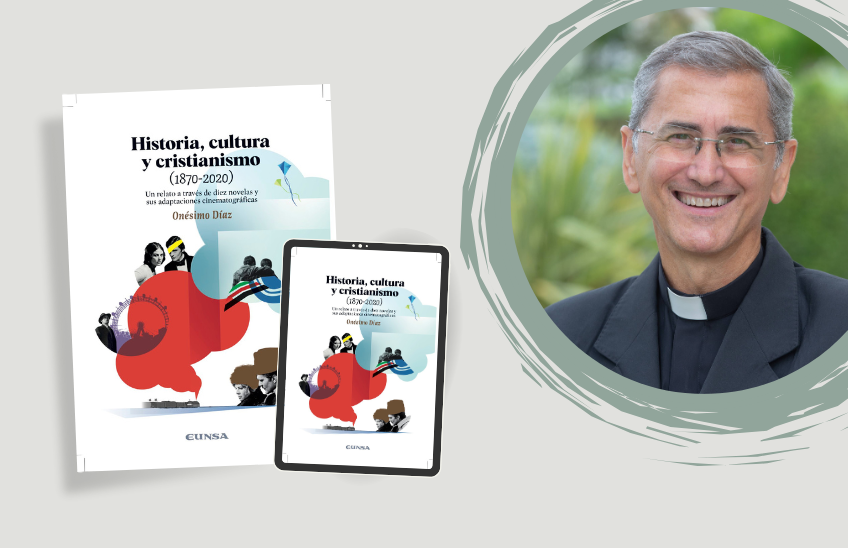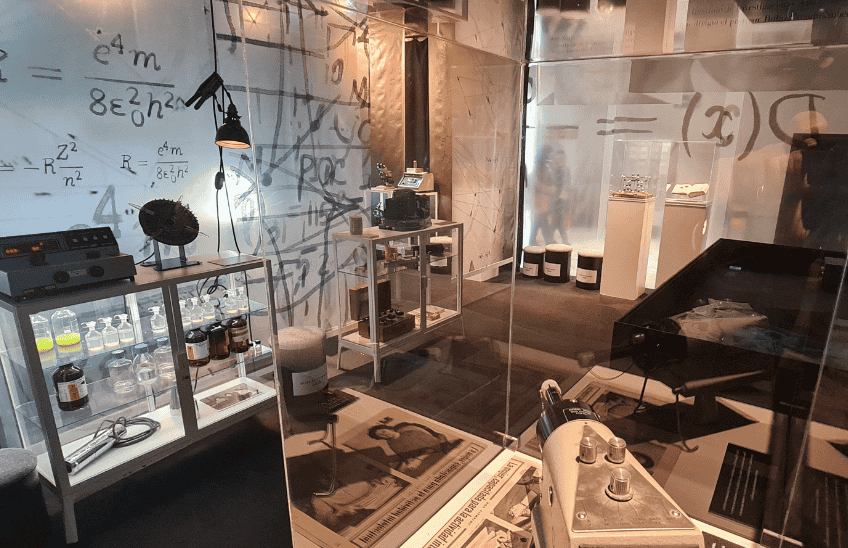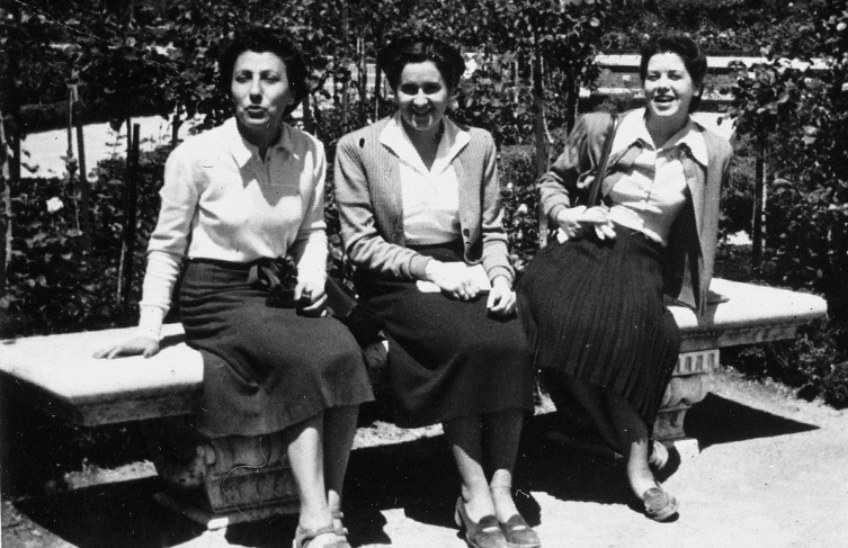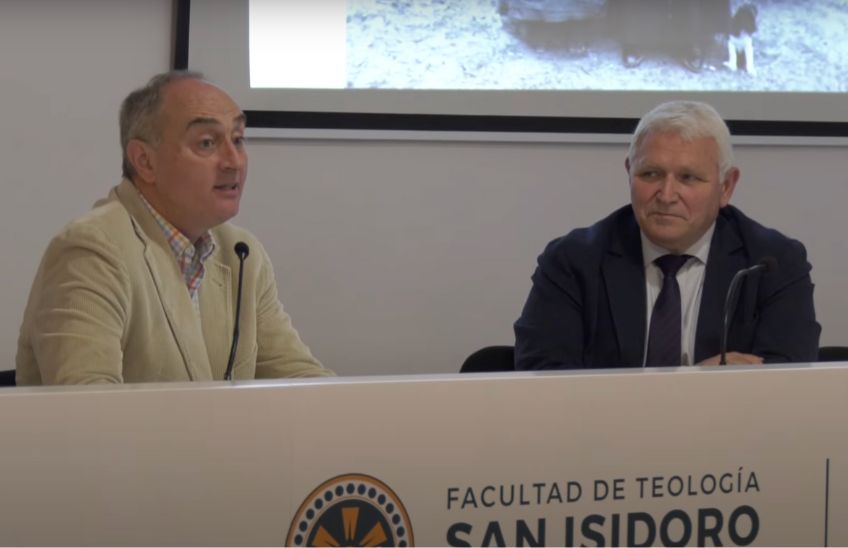50 years since Álvaro del Portillo's election
Fifty years ago, in Rome, Opus Dei experienced one of the most decisive moments in its history: the election of the successor to its founder, Josemaría Escrivá. The chosen one was Álvaro del Portillo, an engineer from Madrid who for decades had been Escrivá's most faithful partner .

15 | 09 | 2025
On September 15, 1975, almost three months after the death of Josemaría Escrivá, the first elective congress of Opus Dei was held in Rome. One name emerged as his natural successor: Alvaro del Portillo. For decades, he had been the founder's closest partner , supporting him at decisive moments with a loyalty that Escriva defined as "strong, humble and always at the service of the Church. As early as 1939, the founder had begun to call him saxum (Latin for "rock").
This nickname, which evoked solidity, seemed to anticipate the role that would correspond to him years later. In 1975, everyone would see in him the rock on which to base the continuity of the Work. The choice was unanimous. Don Alvaro responded with words that set the tone for his entire government:
"You wanted (...) to put the weight of the Work on the shoulders of this poor man: I know well that I am worthless, that I can do nothing, that I am nothing. You have done it because you knew that he had been at our Father's side longer than anyone else and you were looking for continuity. You have not voted for Alvaro del Portillo, but you have chosen our Father".
Afterwards, he went to the tomb of St. Josemaría, kissed the tombstone and asked everyone to pray that the true guide of the Work would continue to be him, from heaven.
Loyalty and continuity
When he took over the government of Opus Dei there were several open issues and not a few difficulties. Of course, Del Portillo did not limit himself to being a manager. He was well acquainted with the complexities of the Roman Curia and had actively participated in important tasks, some of them during the Second Vatican Council. His experience, added to a solid faith and a deep desire to serve, made him a man of serene and supernatural government, capable of facing problems without losing sight of the broader horizon: service to the Church and the whole world.
During his years as president general and later as the first prelate of Opus Dei, he completed projects that St. Josemaría had initiated, such as the juridical configuration of the Work. At the same time, he insisted that the founder's spiritual heritage could not be preserved as a relic, but had to bear fruit. It would be a mistake to bury it out of fear," he wrote in one of his first pastoral letters. We must live the spirit in all its purity and, at the same time, make it bear fruit".
With this conviction he traveled the five continents and promoted the expansion of Opus Dei in twenty new countries: Bolivia, Cameroon, Poland, New Zealand, Nicaragua, Israel.... In each place he encouraged educational, social or welfare initiatives to try to solve concrete needs: schools, university residences, social promotion projects. One of his great dreams was China. He never saw it come true, but he encouraged apostolic work in Hong Kong, Macao and Taiwan, convinced that time and Providence would complete the sowing.
His task as a pastor was also reflected in the abundance of his magisterium: one hundred and seventy-six pastoral letters addressed to the members of Opus Dei, in which he offered doctrine and spiritual advice.
Love for the universal Church
His service was not limited to the internal government of Opus Dei. He continued to collaborate as a consultant various agencies of the Holy See - from the Congregation for the Doctrine of the Faith to the committee for Social Communications - and was an consultant to many ecclesial realities that turned to him for support. He offered them committee, closeness and, above all, prayer, without ever encroaching on their government. He took a special interest in contemplative communities, to whom he asked for prayers and considered them a silent force that sustained the whole Church.
His vision was broad and open: he loved the plurality of charisms and rejoiced in the good that other institutions were doing. In his attention with popes, cardinals, bishops and founders, he always conveyed the conviction that they all served the same cause: to proclaim the Gospel.
Half a century later
In private, he would confess to his spiritual children: "I live only thinking of our Father and how to help you become saints. This combination of grateful report and looking to the future was the hallmark of his life.
Fifty years after that election, his figure appears as that of a bridge: between the charism of the Founder and the generations that received it; between fidelity to the spirit received and the audacity to make it grow.
His discreet style, without stridency, was summed up in a brief prayer that he repeated on every anniversary, on every important celebration: "Thank you, forgive me, help me more! Three words that condensed a whole program of Christian life and that, half a century later, continue to be a luminous echo of his shepherd's heart.




